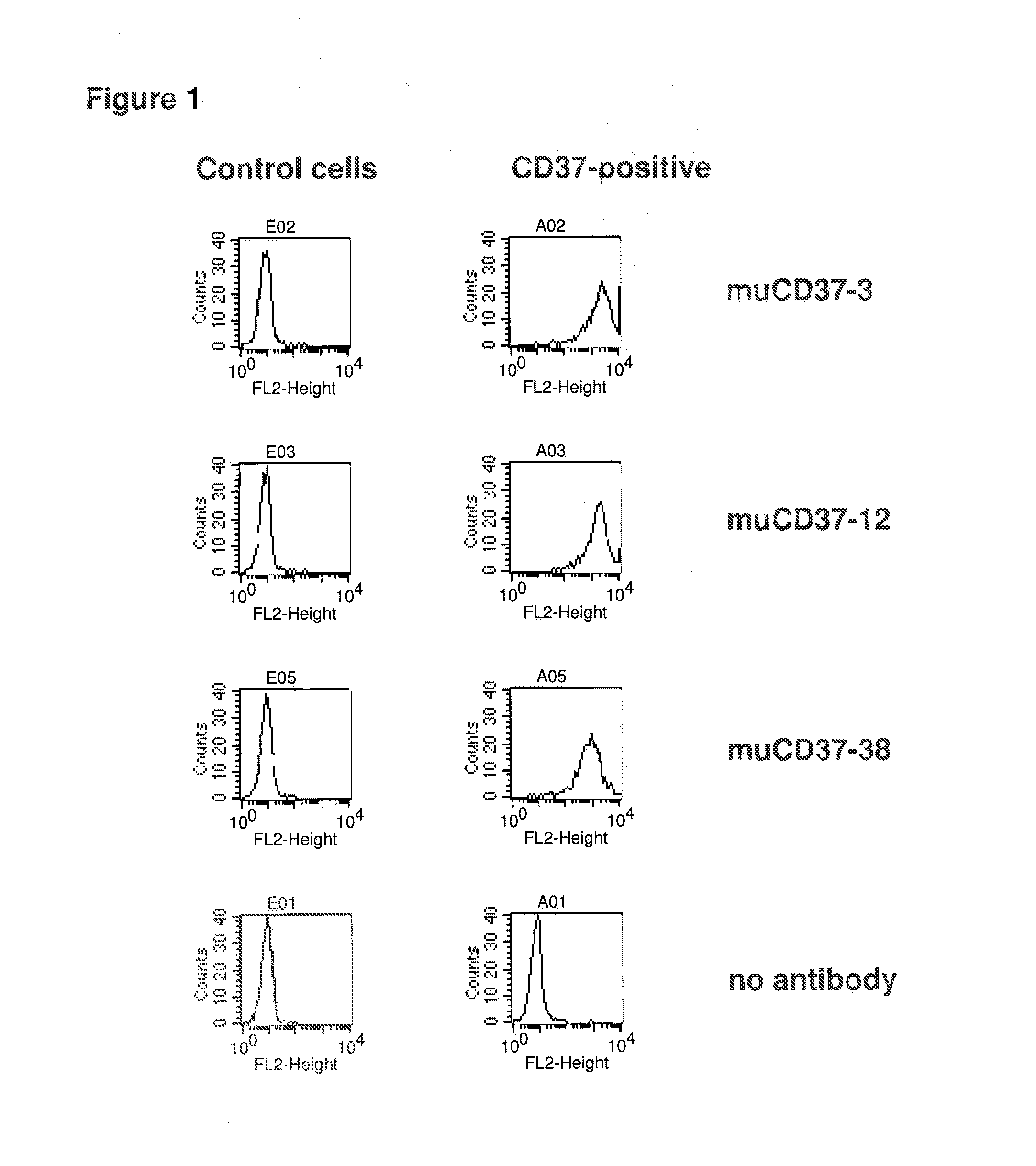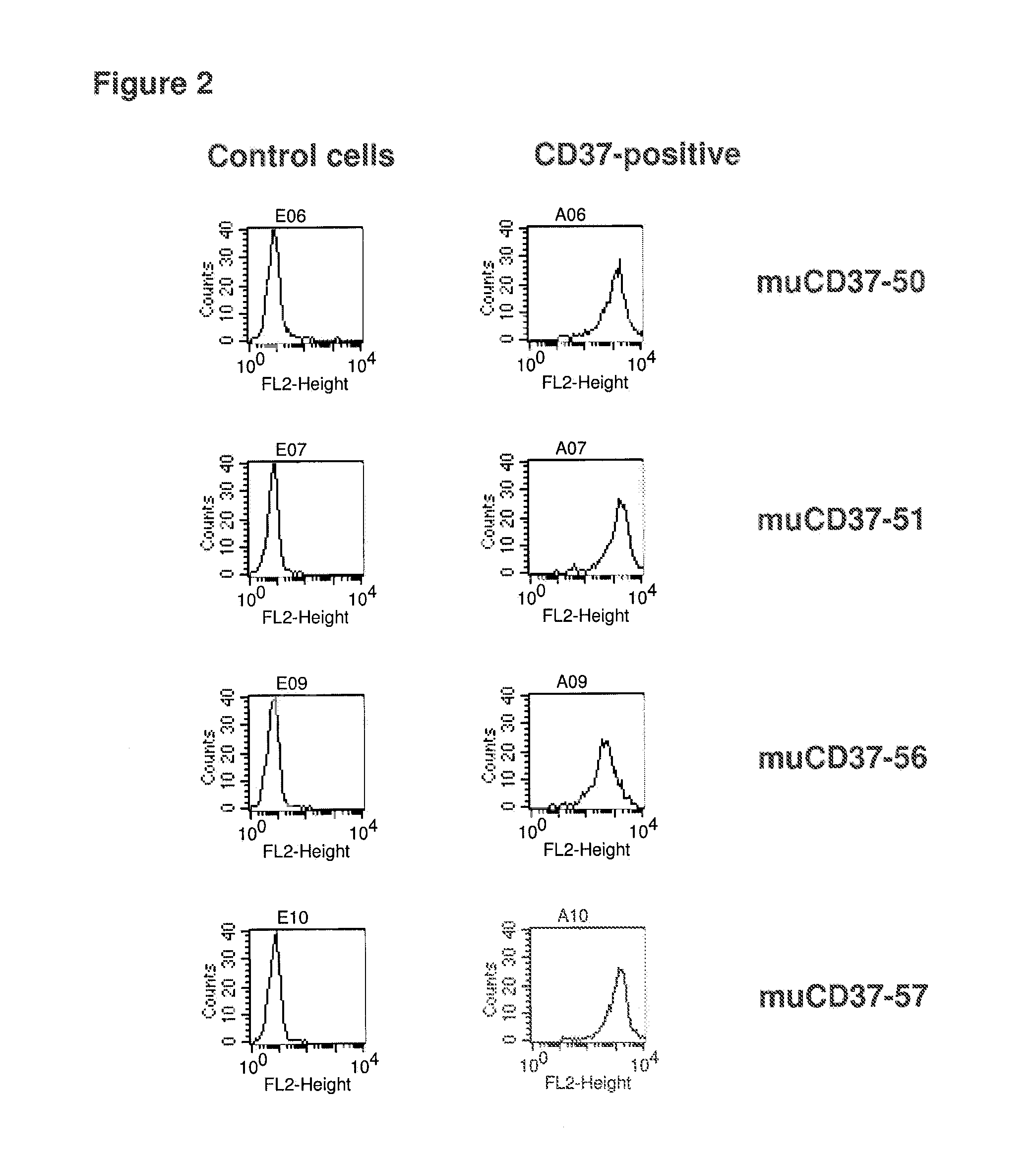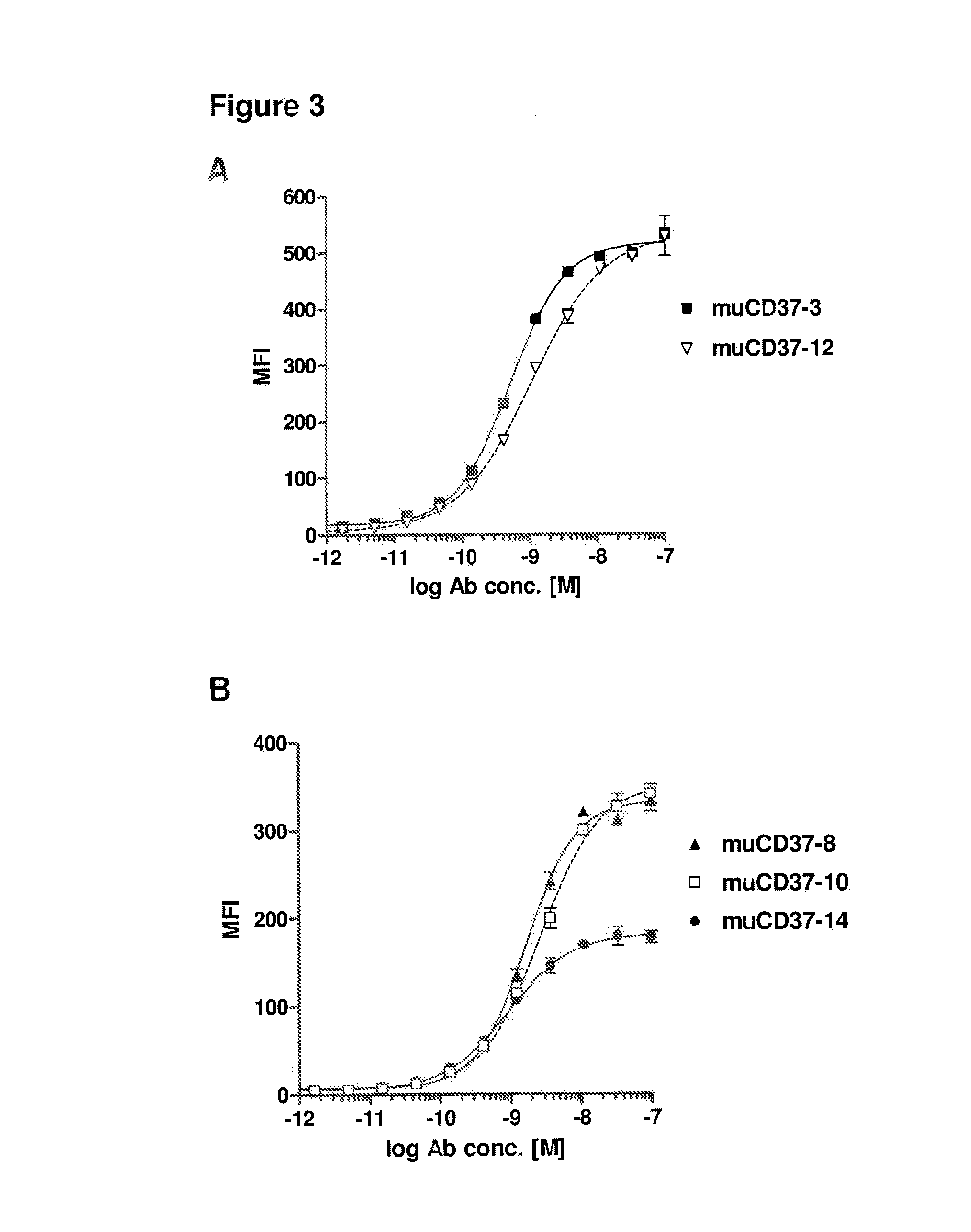CD37-Binding Molecules and Immunoconjugates Thereof
a technology of cd37 and binding molecules, which is applied in the field of antibodies, antigen-binding fragments thereof, polypeptides, and immunoconjugates, and can solve the problems of not all patients could be treated, no cdc activity has been described for any of these binding agents, and no in vitro pro-apoptotic activity
- Summary
- Abstract
- Description
- Claims
- Application Information
AI Technical Summary
Benefits of technology
Problems solved by technology
Method used
Image
Examples
example 1
[0271]Production of Murine CD37 Antibodies
[0272]An expression plasmid pSRa-CD37 was constructed that contained the entire CD37 coding sequence (CDS) flanked by XbaI and BamHI restriction sites that allowed expression of human CD37. 300-19 cells, a pre-B cell line derived from a Balb / c mouse (M. G. Reth et al. 1985, Nature, 317: 353-355), were transfected with this expression plasmid to stably express high levels of human CD37 on the cell surface and used for immunization of Balb / c VAF mice. Mice were subcutaneously immunized with approximately 5×106 CD37-expressing 300-19 cells per mouse every 2-3 weeks by standard immunization protocols used at ImmunoGen, Inc. The immunized mice were boosted with another dose of antigen three days before being sacrificed for hybridoma generation. The spleen from the mouse was collected according to standard animal protocols and was ground between two sterile, frosted microscopic slides to obtain a single cell suspension in RPMI-1640 medium. The spl...
example 2
[0280]Binding Characterization by Flow Cytometry
[0281]Binding specificity was tested by flow cytometry using purified antibodies. FACS histograms demonstrating the binding of muCD37-3, muCD37-12, muCD37-38, muCD37-50, muCD37-51, muCD37-56 and muCD37-57 to CD37-expressing 300-19 cells and the absence of binding to the parental 300-19 cells are shown in FIG. 1 and FIG. 2. All murine antibodies were incubated for 3 h with either CD37-expressing 300-19 cells or the non-transfected 300-19 cells (1×105 cells per sample) in 100 μL FACS buffer (RPMI-1640 medium supplemented with 2% normal goat serum). Then, the cells were pelleted, washed, and incubated for 1 h with 100 μL of FITC-conjugated goat anti-mouse IgG-antibody (Jackson Laboratory, 6 μg / mL in FACS buffer). The cells were pelleted again, washed with FACS buffer and resuspended in 200 μL of PBS containing 1% formaldehyde. Samples were acquired using a FACSCalibur flow cytometer with the HTS multiwell sampler or a FACS array flow cyto...
example 3
[0285]Pro-Apoptotic Activity of Murine Antibodies
[0286]The murine anti-CD37 antibodies induced apoptosis of Ramos and Raji lymphoma cell lines. The degree of apoptosis was measured by flow cytometry analysis after staining with FITC conjugates of Annexin-V (Invitrogen) and with TO-PRO-3 (Invitrogen). In healthy, normal cells, phosphatidylserine is expressed on the inside of the membrane bilayer, and the transition of phosphatidylserine from the inner to the outer leaflet of the plasma membrane is one of the earliest detectable signals of apoptosis. Annexin V binds phosphatidylserine on the outside but not on the inside of the cell membrane bilayer of intact cells. The degree of Annexin V binding is therefore an indicator of the induction of apoptosis. TO-PRO-3 is a monomeric cyanine nucleic acid stain that can only penetrate the plasma membrane when the membrane integrity is breached, as occurs in the later stages of apoptosis. Three populations of cells are distinguishable in two-c...
PUM
| Property | Measurement | Unit |
|---|---|---|
| dissociation constant | aaaaa | aaaaa |
| dissociation constant | aaaaa | aaaaa |
| dissociation constant | aaaaa | aaaaa |
Abstract
Description
Claims
Application Information
 Login to View More
Login to View More - R&D
- Intellectual Property
- Life Sciences
- Materials
- Tech Scout
- Unparalleled Data Quality
- Higher Quality Content
- 60% Fewer Hallucinations
Browse by: Latest US Patents, China's latest patents, Technical Efficacy Thesaurus, Application Domain, Technology Topic, Popular Technical Reports.
© 2025 PatSnap. All rights reserved.Legal|Privacy policy|Modern Slavery Act Transparency Statement|Sitemap|About US| Contact US: help@patsnap.com



